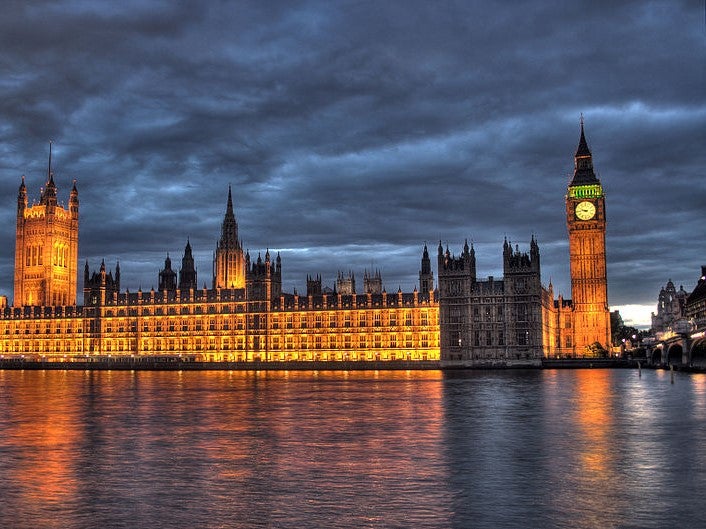
The number of Covid-19 cases in the UK has been steadily growing since the first two cases were reported in York on 31 January. As of 3 March, the number of UK citizens infected with the virus has now reached 51.
This escalating situation led UK Prime Minister Boris Johnson to chair a Cabinet Office Briefing Rooms (COBR) meeting on 2 March and subsequently publish the government’s official action plan with various strategies to deal with the ongoing viral outbreak.

Discover B2B Marketing That Performs
Combine business intelligence and editorial excellence to reach engaged professionals across 36 leading media platforms.
Covid-19 UK action plan: progress to date
The government action plan document explains how the UK’s response to Covid-19 is phased. Currently, the country is in the so-called ‘Contain’ and ‘Research’ phases, however, depending on how the outbreak evolves, the next stages will be ‘Delay’ and ‘Mitigate’.
This phased approach, and the actions taken to date, have been informed by adapting the UK’s existing contingency plans for a pandemic influenza outbreak to the specificities of this novel coronavirus and the speed at which news and information spreads in the era of social media.
In addition to daily updates on the situation, which the government has encouraged people to rely on instead of misinformation rampant on the internet, the Department of Health and Social Care has focused on encouraging the public to improve their hygiene practices, particularly hand washing, and to avoid putting unnecessary pressure on frontline NHS services where possible.
Once people have contracted Covid-19 the National Health Service (NHS) and Health & Social Care Northern Ireland (HSCNI) have focused on detecting and isolating these patients. In mid-February, the government strengthened healthcare professionals’ powers to quarantine those at risk of spreading the virus.

US Tariffs are shifting - will you react or anticipate?
Don’t let policy changes catch you off guard. Stay proactive with real-time data and expert analysis.
By GlobalDataDelay: what can be done to slow the spread of Covid-19?
“In the event of the outbreak worsening, or a severe prolonged pandemic, the response will escalate, and the focus will move from Contain to Delay, through to Mitigate,” the government’s action plan explains. “During this phase, the pressures on services and wider society may start to become significant and clearly noticeable.”
The NHS and HSCNI will prioritise Covid-19 patients, meaning that “other services are reduced temporarily”. The extent to which it will disrupt normal NHS services will depend on the severity of the outbreak, and whether it becomes a pandemic.
To reduce this disruption of frontline NHS services, the ‘Delay’ phase, if initiated, aims to delay the spread of the disease until “the health services are less busy in the summer months when flu and other winter bugs are not driving GP consultations and hospital admissions”.
The spread will be delayed by so-called “population distancing strategies”, for instance, school closures, encouraging home working and reducing large-scale gatherings. These types of strategies have already been implemented in certain schools across the UK; but larger, regional school closures and event cancellations have been seen in Italy to try and control Covid-19’s spread.
These strategies will also help to ensure “the country’s ability to run as normally as possible”, and better “protect vulnerable individuals with underlying illnesses and thus more at risk of becoming seriously affected by the disease”.
Mitigate: challenges of the worst-case scenario
If the outbreak continues to develop and spread, the government action plan notes that there will be a need to “draw down on existing stockpiles of the most important medicines, medical devices and clinical consumables”. A distribution strategy will need to be set up in order for these medicines and equipment, such as protective clothing, to be available across the UK.
Another challenge will be the drain on the health services as NHS and HSCNI staff become infected with Covid-19. This may require health service retirees to be asked to return to duty.
The government document notes it is important to remember that the healthcare services cannot do this alone. If police officers or fire fighters become ill from the virus, the government noted that these emergency services would only be able to concentrate on the most serious crimes and general maintenance of public order; however, the plan notes that armed forces other military authorities will be on hand to support civilian authorities if requested.
Over the weekend as the government was preparing for the COBR meeting and preparing this action plan document, Secretary of State for Health and Social Care Matt Hancock noted: “The UK is a world leader in preparing for and managing disease outbreaks and I have every confidence in our nation’s ability to respond to the threat of Covid-19.
“Public safety is our top priority. Our battle plan will ensure that as this escalates, every part of government is working together to share the responsibility of tackling the health, economic and social impacts of Covid-19.”




